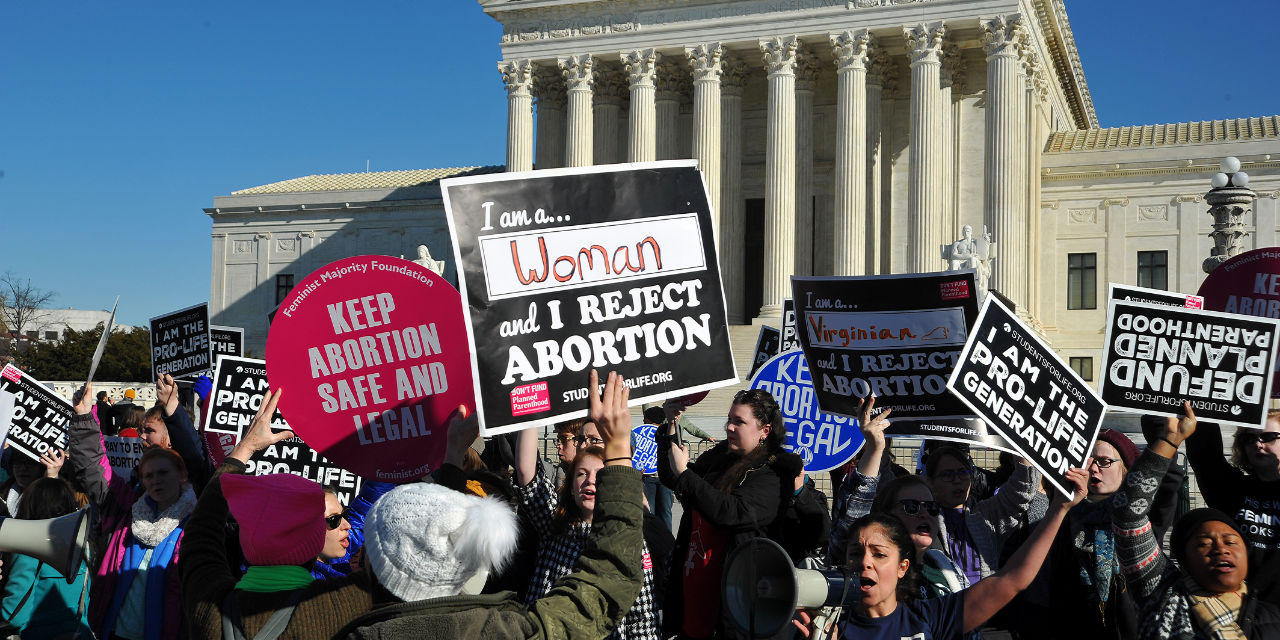A recent poll by Fox News reveals a continuing problem Americans have in understanding what the current law is concerning abortion, versus what they want it to be. While the nation is evenly split over whether abortion should be prohibited or permitted in some or all cases, nearly two-thirds say they support the 1973 U.S. Supreme Court ruling in Roe v. Wade.
If you recognize the logical inconsistency there, you’re not alone. There’s a disconnect uncovered by the poll between what Roe means and what people think it means.
First, the numbers from the poll.
Over 1,000 registered voters were surveyed from September 12-15. Of those, 65% say Roe should be allowed to stand while only 28% say it should be overturned. The political and religious splits are interesting. The 65% is made up of 53% of Republicans and 77% of Democrats, 72% of Catholics and 49% of white evangelical Christians.
The 28% opposed to Roe includes 40% of Republicans and 17% of Democrats.
So, what does the holding in Roe actually mean, constitutionally speaking? When combined with its companion case, Doe v. Bolton, decided the same day, and as slightly modified by the 1992 case of Planned Parenthood v. Casey, Roe stands for abortion on demand through all nine months of pregnancy.
Although Roe paid lip-service to a state’s right to restrict or even prohibit abortion after viability, it also included a requirement that such laws provide an exception for the life or health of the mother. Doe delved into the definition of maternal health as it applies to the Roe decision and came up with one so broad that it includes a mother’s physical, mental, emotional, financial, and even familial health.
Once you put all those cases and their reasoning together it means that states can regulate around the edges – informed consent laws, parental consent/notice, 24-hour waiting periods, etc. – but they really cannot prohibit abortion at any stage of fetal development.
So, if Roe means abortion on demand for the entire length of a pregnancy, is that what Americans want?
The answer is “no,” based on the answers they gave to generalized questions about abortion in the poll.
When asked the question: “Should abortion be legal in all or most cases?” 29% of poll respondents said “in all cases” – which is what Roe actually stands for – while 20% said “in most.”
On the other hand, 38% of those polled agreed that abortion should only be legal in certain cases, such as rape, incest, or to save the life of the mother, while 11% said if should be illegal in all cases.
That means 49% of Americans support keeping abortion legal in all or most cases, while 49% think it should be illegal in all or most cases. Fox even noted a 4% switch to the pro-life side since October 2020. But the important point here is that only 29% support abortion in all cases – i.e., the Roe standard, which means that 69% of Americans favor some kind of restrictions on abortion.
There’s no logical way 65% of Americans want to keep Roe intact, given their desire to prohibit some or all abortions in the numbers (69%) reported. The bottom line for polls about supporting Roe v. Wade is that pollsters should stop asking that question – it’s a fairly meaningless way to identify where Americans stand on abortion. The average non-lawyer doesn’t read Supreme Court opinions and gets their understanding of Roe from largely inaccurate media reports.
When they are asked specific questions about abortion, however, they tend to give us a much more accurate – and pro-life – picture of where they stand. And that’s an encouraging sign.
On December 1, the Supreme Court will be hearing arguments in the case of Dobbs v. Jackson Women’s Health Organization, which involves the constitutionality of Mississippi’s 15-week abortion ban. Since that state ban would likely be ruled unconstitutional under Roe v. Wade, Mississippi and many other organizations that have filed friend-of-the-court briefs in the case are calling for the justices to overturn Roe.
Once Roe is struck down, and the issue of abortion is returned to its proper legislative venues in the states and in Congress, the true voice of Americans on the issue of abortion can finally be heard. And those of us who believe that abortion should be unthinkable can make the case for treating all life, including pre-born babies, as precious in God’s sight and protected under law.
Photo from Shutterstock.






